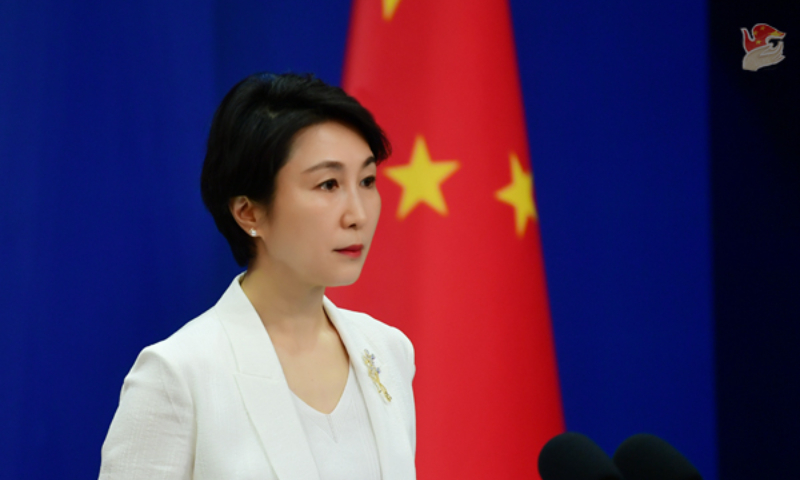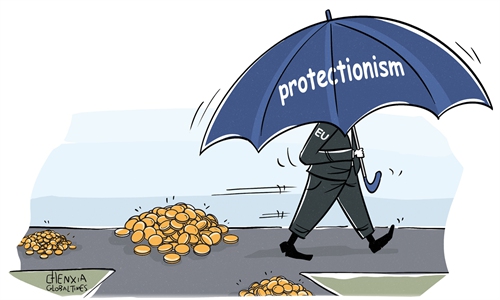US’ discriminatory measures targeting Chinese EVs to damage own interests: Chinese FM

Chinese Foreign Ministry spokesperson Mao Ning Photo: fmprc.gov.cn
China's Foreign Ministry on Thursday said that the US' discriminatory measures targeting Chinese electric vehicles (EVs) damage the stability of the global supply chain and will eventually backfire on US' own interests, urging the US to create a favorable environment for fair competition for global enterprises.
Chinese Foreign Ministry Spokesperson Mao Ning made the remarks at a press conference, responding to US President Joe Biden's recent remarks saying that the Chinese government is heavily subsidizing EVs to flood the US market, and the US is not going to put up with it.
Mao said that China's new-energy products including EVs have been warmly welcomed in the international market. Their popularity is a result of continuous technical innovation, complete production and supply chain system and full market competition, which is also a result of the joint effect of a comparative advantage and the law of the market. Fundamentally speaking, the enterprises actually fight out the global popularity rather than depending on the subsidies by the government.
In 2023, China only exported 13,000 EVs to the US, Mao said, questioning how 13,000 EVs could "flood" the US market. Mao noted that industrial subsidy policy originated in the US and Europe, and is commonly adapted worldwide.
China's industrial subsidy policies strictly abide by the WTO rules and always adhere to the principle of fairness, transparency, and non-discrimination, which are not prohibited by the WTO, Mao noted.
Mao said that the US has actually been introducing several industrial subsidies, such as the CHIPS and Science Act and the US Inflation Reduction Act, and has been directly intervening in the allocation of market resources through direct and indirect subsidies worth billions of US dollars. "Subsidies can't lead to industrial competitiveness, and protectionism protects the backwardness and will cause the loss of the future," Mao said.
Mao urged the US to effectively abide by market principles and international trade rules while creating a favorable environment and fair competition for global enterprises. China stands ready to take resolute measures to safeguard its legitimate rights and interests, she said.
Chinese officials and experts have repeatedly criticized tariffs imposed by the US. The US government has announced that it will start imposing increased tariffs on an array of Chinese products, including EVs, EV batteries, semiconductors and medical products on August.
Experts said that while the US has become increasingly reckless in its protectionist policies and crackdown on China, it cannot completely cut off all business cooperation between Chinese and US firms, given the massive interests at stake.



